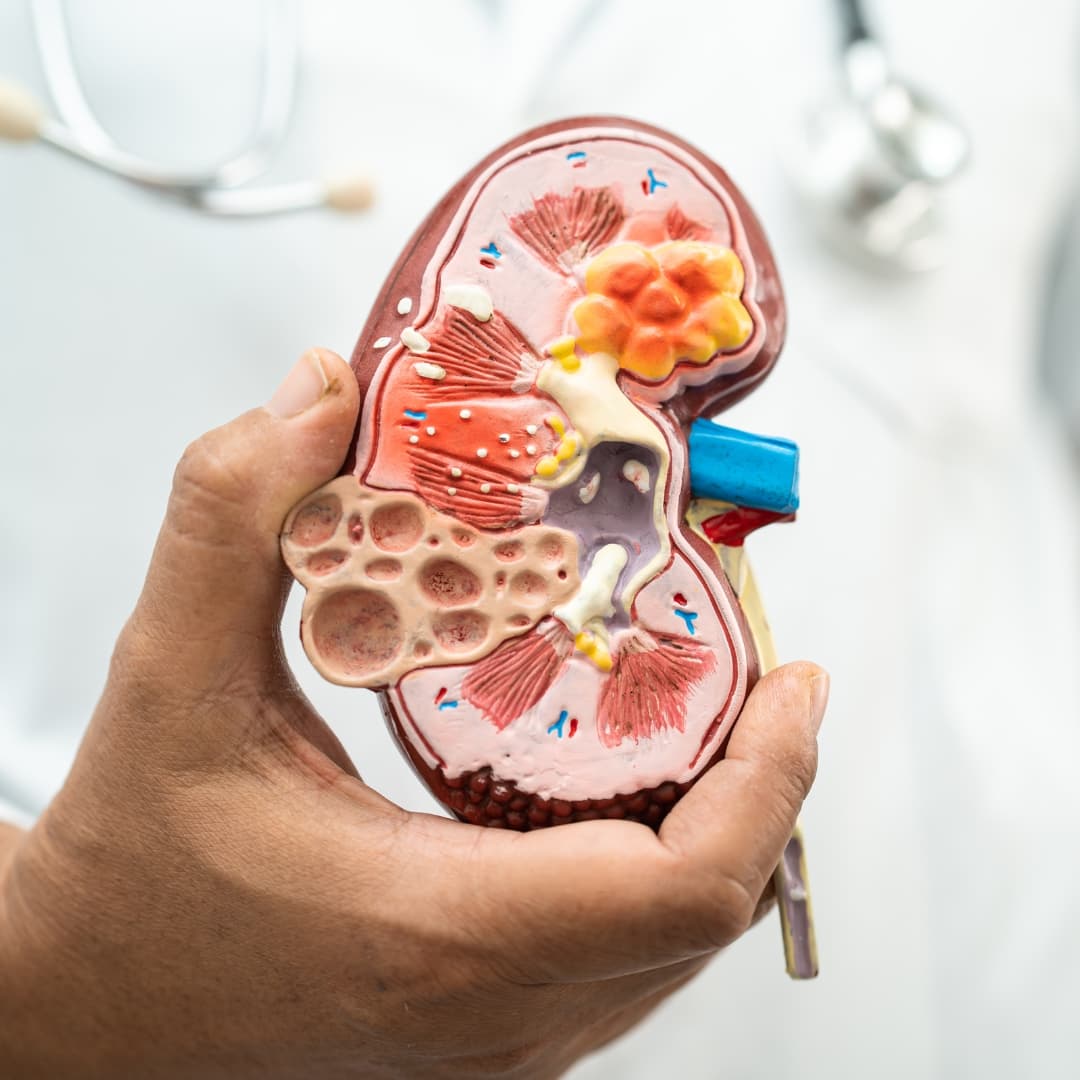Chronic Kidney Disease (CKD) & Renal Failure
Chronic Kidney Disease (CKD) is a condition where the kidneys gradually lose their ability to filter waste and excess fluids from the blood. If not treated on time, CKD can progress to renal failure, where kidneys stop working completely and require dialysis or a transplant. Early detection and proper management can slow down the progression and improve quality of life.

Warning Signs of CKD & Renal Failure
- Constant tiredness or weakness.
- Swelling in feet, ankles, or around the eyes.
- Nausea, vomiting, or loss of appetite.
- Changes in urination (frequent, less, or foamy urine).
- Shortness of breath or chest discomfort.
- Difficulty concentrating or sleep disturbances.
Primary Causes of Chronic Kidney Disease
- Diabetes (high blood sugar damaging kidney filters).
- High blood pressure (Hypertension).
- Frequent kidney infections or blockages.
- Glomerulonephritis (inflammation of kidney filters).
- Polycystic Kidney Disease (PKD) and other inherited disorders.
- Long-term use of painkillers or harmful medications.
Do's & Don'ts for Chronic Kidney Disease
- Do's
- Monitor blood pressure and blood sugar regularly.
- Follow a kidney-friendly diet low in salt and processed foods.
- Stay hydrated but as advised by your doctor.
- Take prescribed medicines on time.
- Go for regular kidney function tests (blood & urine tests). Don'ts
- Avoid excessive salt, junk food, and red meat.
- Do not skip check-ups or delay treatment.
- Avoid over-the-counter painkillers without medical advice.
- Limit alcohol and stop smoking.
- Don't ignore early warning signs like swelling, fatigue, or changes in urine.
